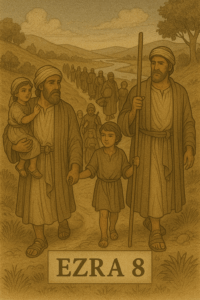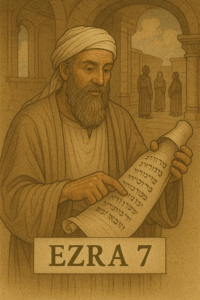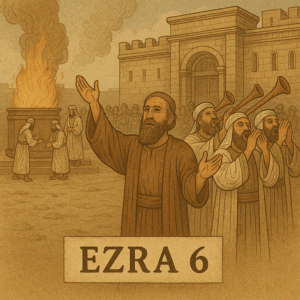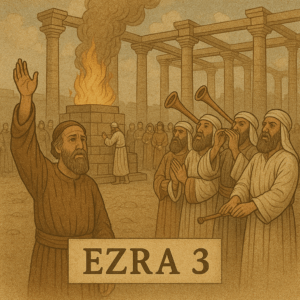1 Kings Chapter 16 chronicles the turbulent leadership of Israel, highlighting the rise and fall of kings like Baasha, Elah, Zimri, Omri, and Ahab. This chapter illustrates themes of divine judgment, the consequences of disobedience, and the fragility of human power.
The context of 1 Kings 16
This chapter begins with God’s judgment against King Baasha for leading Israel into idolatry, mirroring the sins of Jeroboam. After Baasha’s death, his son Elah reigns briefly before being assassinated by Zimri. Zimri’s rule is short-lived, as Omri rises to power after a brief civil conflict. The chapter concludes with Omri’s reign and the beginning of Ahab’s rule, setting the stage for greater conflicts.
Themes explored in 1 Kings 16
- Divine judgment on sinful leadership
God’s judgment against Baasha and his lineage underscores the accountability of leaders to uphold righteousness. The repeated downfall of kings highlights the consequences of leading others astray through idolatry and disobedience. - The fragility of human power
The rapid succession of kings in Israel demonstrates the instability of power when it is not grounded in obedience to God. This theme serves as a reminder of the transient nature of earthly authority. - The influence of leadership on a nation
Each king’s actions significantly impact the spiritual and moral direction of Israel. Ahab’s rise, marked by even greater idolatry, reflects the compounding effects of unfaithful leadership. - God’s sovereignty over nations
Despite the chaos, the narrative affirms God’s control over the rise and fall of leaders. His actions through prophets and events remind readers that He ultimately governs the destiny of nations.
Modern reflections on 1 Kings 16
This chapter challenges readers to consider the responsibilities of leadership and the importance of aligning actions with God’s will. It serves as a warning against complacency and the dangers of leading others astray.
The rapid changes in leadership and the consequences of disobedience also inspire trust in God’s sovereignty, encouraging individuals to seek stability and purpose through faith.
Conclusion
1 Kings Chapter 16 portrays a period of political and spiritual turmoil in Israel, emphasizing the consequences of idolatry and disobedience. The chapter serves as a stark reminder of the accountability of leaders and the enduring sovereignty of God. As we reflect on this chapter, may we strive for faithfulness and trust in God’s ultimate plan.




